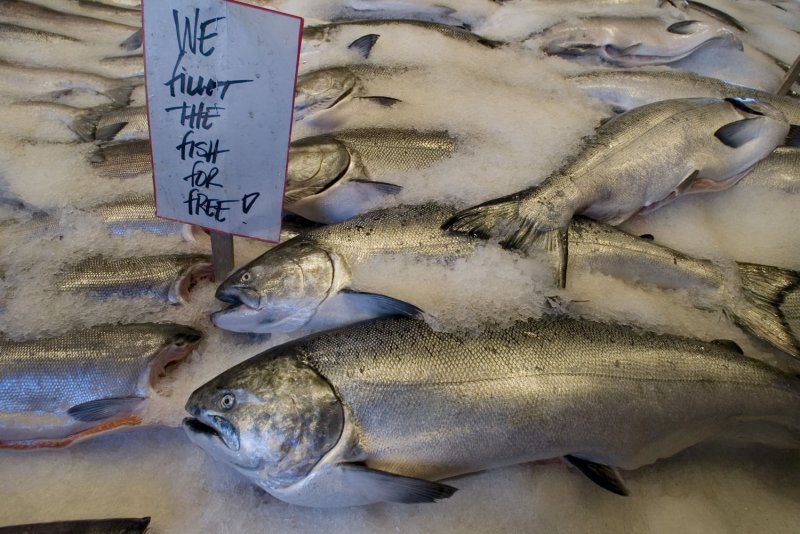Salmon is an excellent source of vitamin D. (UPI Photo/Jim Bryant) |
License Photo
EXETER, England, Aug. 6 (UPI) -- Elderly that don't get enough vitamin D have a heightened risk of developing Alzheimer's disease according to new medical research conducted in the United Kingdom.
Doctors had previously linked vitamin D to dementia, but the latest study -- published this week in Neurology, the medical journal of the American Academy of Neurology -- is the first to demonstrate a strong correlation.
"We expected to find an association between low vitamin D levels and the risk of dementia and Alzheimer's disease, but the results were surprising," lead author David J. Llewellyn, researcher at the University of Exeter Medical School, said in a press release. "We actually found that the association was twice as strong as we anticipated."
Salmon, tuna, milk and eggs are just a few of the foods that offer healthy doses of vitamin D. Sun exposure in moderate amounts can also help humans absorb the proper amount of vitamin D.
Llewellyn and other researchers in the U.K. looked at health data on Americans while conducting their study. Researchers analyzed the incidents of dementia and Alzheimer's, as well as dietary habits, among 1,600 patients, aged 65 and over. Those with even a moderate vitamin D deficiency were 69 percent more likely to develop dementia.
Llewellyn said the research only shows correlation, not causation -- and advised against rushing out and swallowing down supplements.
"Clinical trials are now needed to establish whether eating foods such as oily fish or taking vitamin D supplements can delay or even prevent the onset of Alzheimer's disease and dementia," he said.















